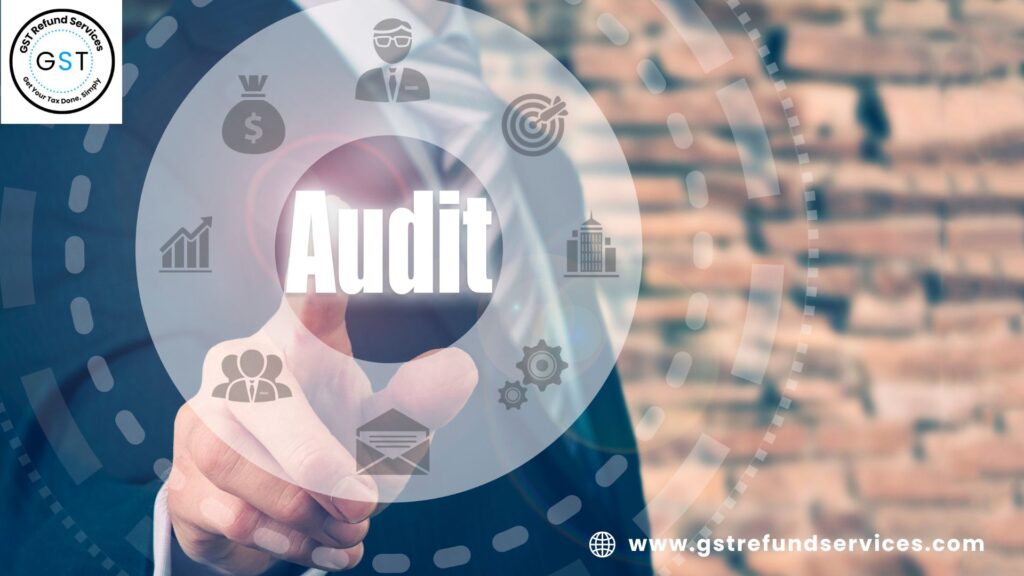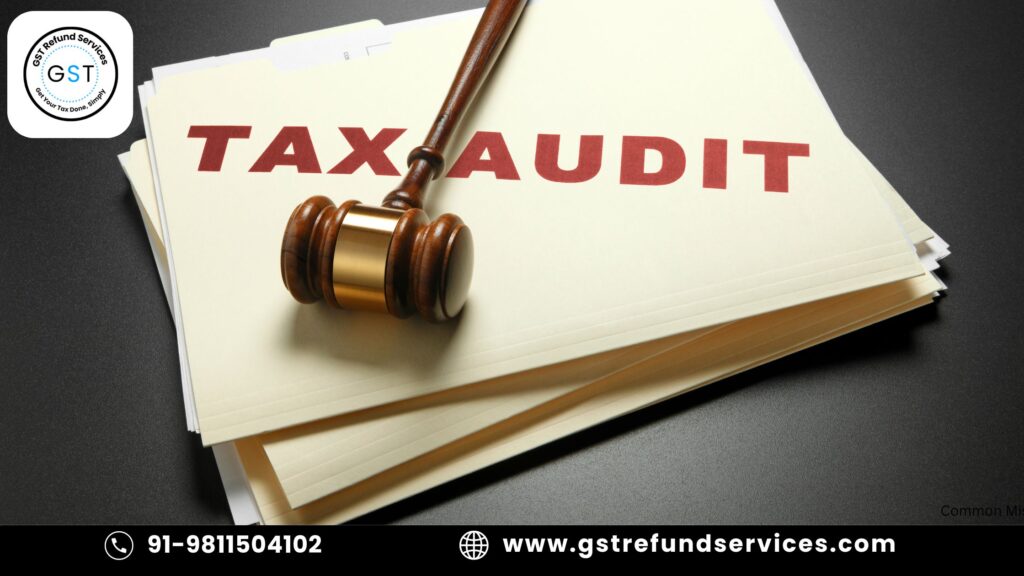
Businesses in India need to be careful about maintaining their tax compliance as the Goods and Services Tax (GST) framework changes. The GST audit is a crucial procedure that guarantees the precision and openness of tax returns. To help businesses get ready and steer clear of typical problems, we will examine the current state of GST audits in 2024 in this blog.
Understanding GST Audits: A GST audit is an assessment of a taxpayer’s records, returns, and other documents in order to verify that they are correct for declared turnover, taxes paid, refunds claimed, and input tax credit obtained. The audit is carried out in order to verify that one follows the GST law
Who Is Eligible for a GST Audit?
- Any registered taxpayer whose total annual revenue exceeds ₹5 crore is obliged to have a cost accountant or chartered accountant evaluate their financial statements.
- If the GST department suspects any fraud or irregularities, they may also launch special audits in addition to statutory audits.
Major modifications to the 2024 GST audit requirements: - Barrier Limit: ₹5 crore continues to be the barrier for a statutory GST audit. Businesses must, however, keep abreast of any modifications declared by the GST Council.
- Statement of Reconciliation: A crucial component of the audit is the preparation of the reconciliation statement in GSTR-9C, which guarantees that the financial statements and the submitted GST returns match.
- Compliance with E-Invoicing: Companies need to make sure that their GST audit procedures are completely connected with e-invoicing compliance. Failure to comply may result in disparities and possible audit problems.
Common Obstacles in the Path of GST Audits: - Input Tax Credit (ITC) Mismatch: Discrepancies between ITC claimed in returns and what is represented in the books of accounts are among the most frequent problems.
- Classification errors: When goods and services are misclassified, the wrong tax rates may be applied, which may result in higher tax obligations during an audit.
- Insufficient Records: Accurate records are essential. Penalties may arise from the failure to provide supporting documentation for tax payments, ITC claims, or other transactions.
How to Get Ready for an Audit of GST:
- Frequent Accounting: Make sure there are no discrepancies by regularly comparing your GST returns and financial data.
- Keep extensive documentation: organize and make conveniently available all invoices, tax payment receipts, and other pertinent papers.
- Seek Expert Assistance: Hire a certified GST expert or chartered accountant to go over your records and help you with the audit procedure.
GST audits are crucial to preserving India’s tax compliance. Businesses must be aware of changes in legislation and requirements and be ready. Businesses can confidently handle GST audits in 2024 by comprehending the audit procedure, resolving frequent problems, and keeping accurate records. Request for Action: Is your company prepared to undergo a GST audit? Make sure you’re ready by speaking with our specialists at GST Refund Services. To assist you in maintaining compliance and avoiding any potential problems, we offer thorough GST audit services. Reach out to us right now for a consultation…


